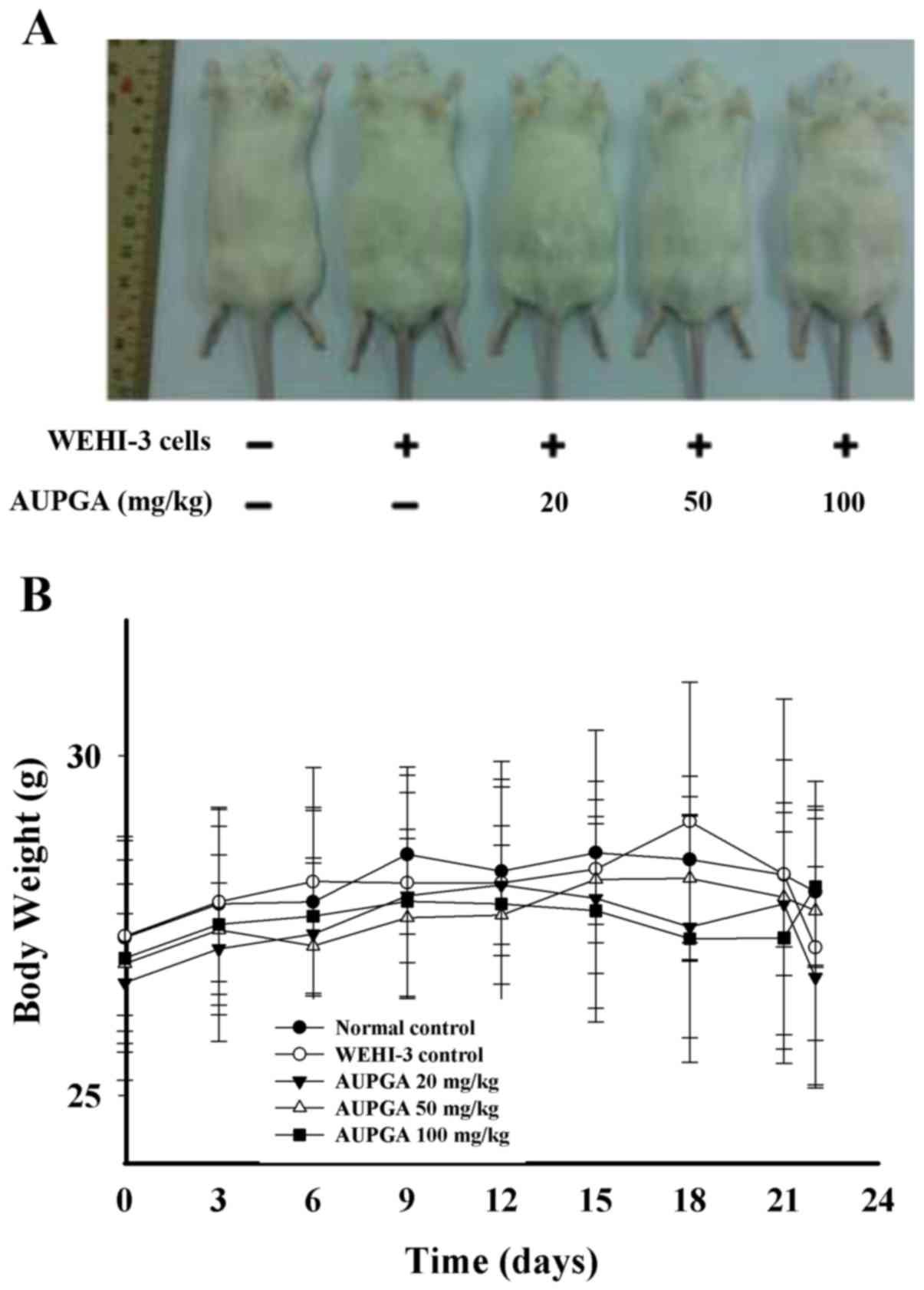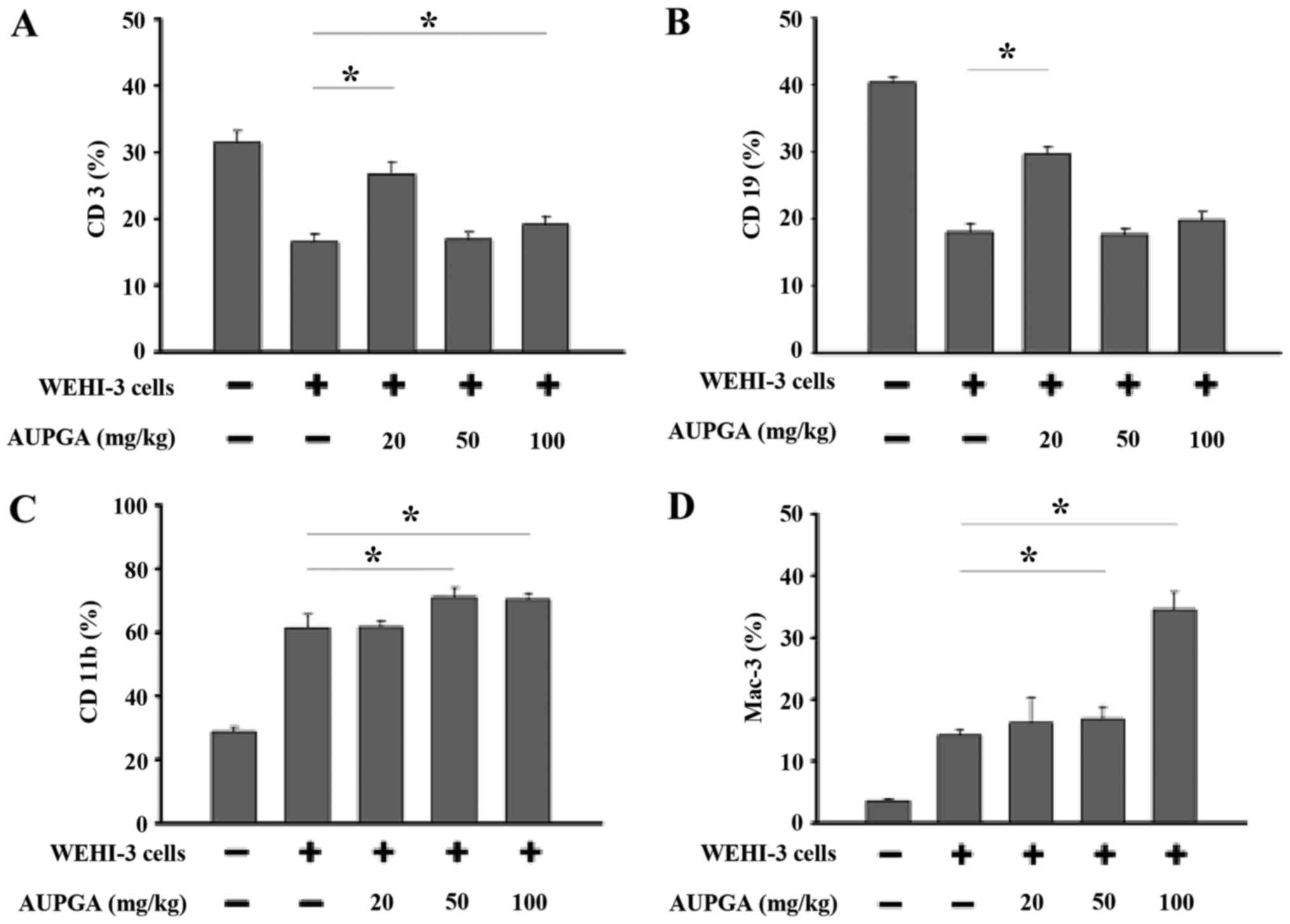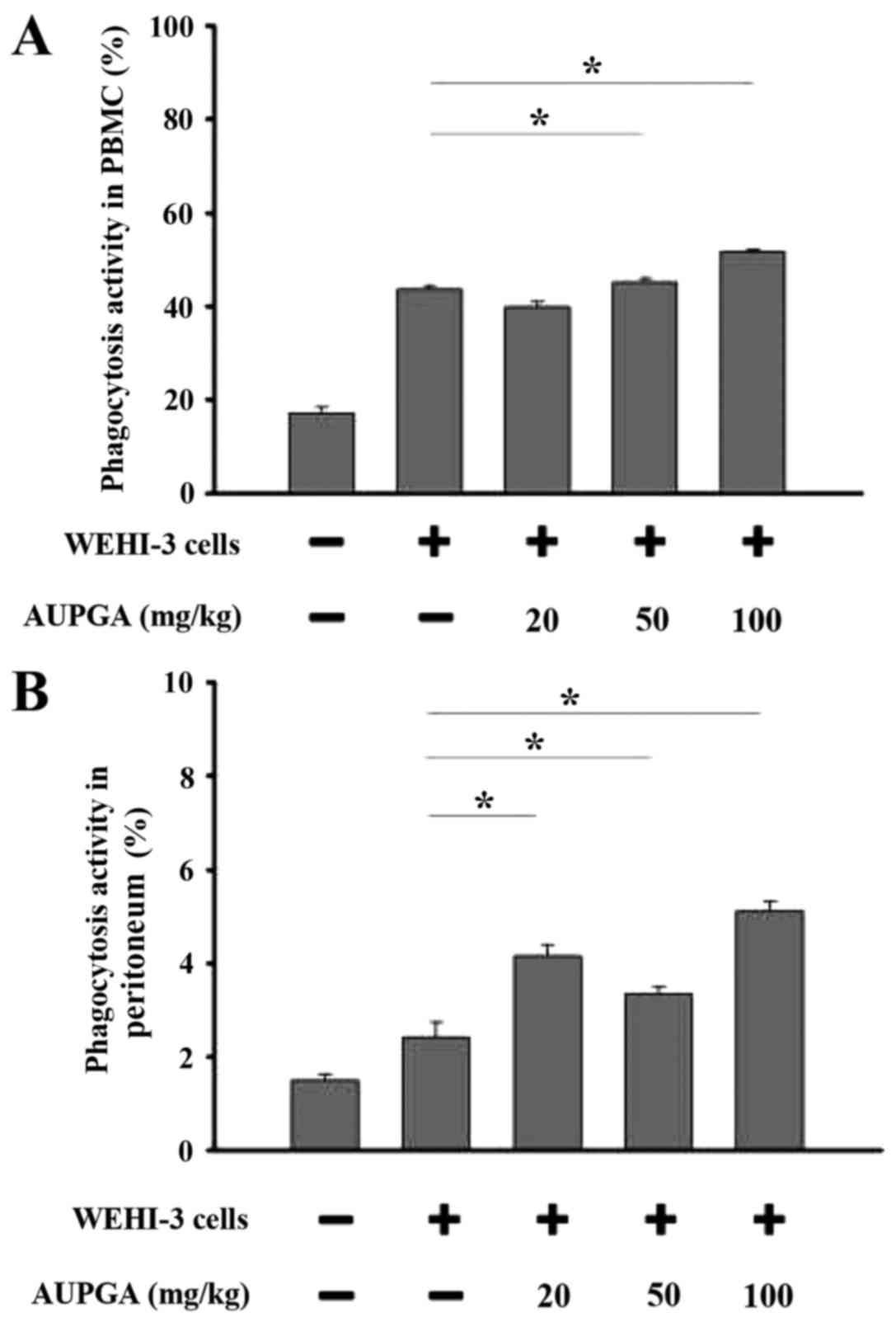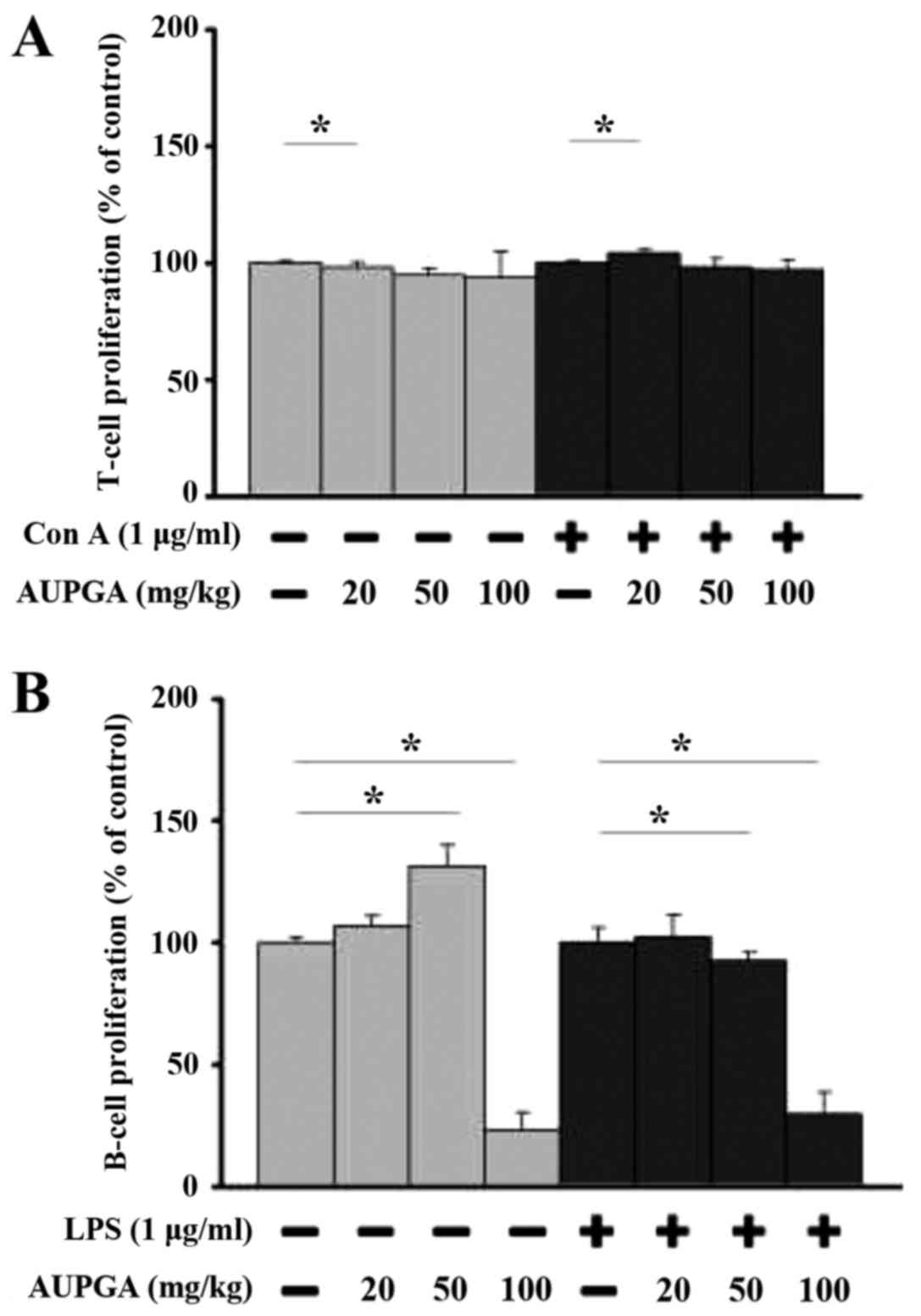|
1
|
Cancer Genome Atlas Research Network, .
Genomic and epigenomic landscapes of adult de novo acute myeloid
leukemia. N Engl J Med. 368:2059–2074. 2013. View Article : Google Scholar : PubMed/NCBI
|
|
2
|
Thiede C: Mutant DNMT3A: Teaming up to
transform. Blood. 119:5615–5617. 2012. View Article : Google Scholar : PubMed/NCBI
|
|
3
|
Juliusson G, Antunovic P, Derolf A,
Lehmann S, Möllgård L, Stockelberg D, Tidefelt U, Wahlin A and
Höglund M: Age and acute myeloid leukemia: Real world data on
decision to treat and outcomes from the Swedish Acute Leukemia
Registry. Blood. 113:4179–4187. 2009. View Article : Google Scholar : PubMed/NCBI
|
|
4
|
Du Y, Lu F, Li P, Ye J, Ji M, Ma D and Ji
C: SMG1 acts as a novel potential tumor suppressor with epigenetic
inactivation in acute myeloid leukemia. Int J Mol Sci.
15:17065–17076. 2014. View Article : Google Scholar : PubMed/NCBI
|
|
5
|
Gundermann S, Klinker E, Kimmel B, Flierl
U, Wilhelm M, Einsele H and Kunzmann V: A comprehensive analysis of
primary acute myeloid leukemia identifies biomarkers predicting
susceptibility to human allogeneic Vγ9Vδ2 T T cells. J Immunother.
37:321–330. 2014. View Article : Google Scholar : PubMed/NCBI
|
|
6
|
Soerjomataram I, Oomen D, Lemmens V,
Oenema A, Benetou V, Trichopoulou A, Coebergh JW, Barendregt J and
de Vries E: Increased consumption of fruit and vegetables and
future cancer incidence in selected European countries. Eur J
Cancer. 46:2563–2580. 2010. View Article : Google Scholar : PubMed/NCBI
|
|
7
|
Pratheeshkumar P, Sreekala C, Zhang Z,
Budhraja A, Ding S, Son YO, Wang X, Hitron A, Hyun-Jung K, Wang L,
et al: Cancer prevention with promising natural products:
Mechanisms of action and molecular targets. Anticancer Agents Med
Chem. 12:1159–1184. 2012. View Article : Google Scholar : PubMed/NCBI
|
|
8
|
Hatcher H, Planalp R, Cho J, Torti FM and
Torti SV: Curcumin: From ancient medicine to current clinical
trials. Cell Mol Life Sci. 65:1631–1652. 2008. View Article : Google Scholar : PubMed/NCBI
|
|
9
|
Liu BL, Zhang X, Zhang W and Zhen HN: New
enlightenment of French Paradox: Resveratrol's potential for cancer
chemoprevention and anti-cancer therapy. Cancer Biol Ther.
6:1833–1836. 2007. View Article : Google Scholar : PubMed/NCBI
|
|
10
|
Salvioli S, Sikora E, Cooper EL and
Franceschi C: Curcumin in cell death processes: A challenge for CAM
of age-related pathologies. Evid Based Complement Alternat Med.
4:181–190. 2007. View Article : Google Scholar : PubMed/NCBI
|
|
11
|
Misra A, Rastogi K and Joshi SR: Whole
grains and health: Perspective for Asian Indians. J Assoc
Physicians India. 57:155–162. 2009.PubMed/NCBI
|
|
12
|
Flint AJ, Hu FB, Glynn RJ, Jensen MK,
Franz M, Sampson L and Rimm EB: Whole grains and incident
hypertension in men. Am J Clin Nutr. 90:493–498. 2009. View Article : Google Scholar : PubMed/NCBI
|
|
13
|
Hu FB: Diet and lifestyle influences on
risk of coronary heart disease. Curr Atheroscler Rep. 11:257–263.
2009. View Article : Google Scholar : PubMed/NCBI
|
|
14
|
Maki KC, Beiseigel JM, Jonnalagadda SS,
Gugger CK, Reeves MS, Farmer MV, Kaden VN and Rains TM: Whole-grain
ready-to-eat oat cereal, as part of a dietary program for weight
loss, reduces low-density lipoprotein cholesterol in adults with
overweight and obesity more than a dietary program including
low-fiber control foods. J Am Diet Assoc. 110:205–214. 2010.
View Article : Google Scholar : PubMed/NCBI
|
|
15
|
Haas P, Machado MJ, Anton AA, Silva AS and
de Francisco A: Effectiveness of whole grain consumption in the
prevention of colorectal cancer: Meta-analysis of cohort studies.
Int J Food Sci Nutr. 6:1–13. 2009. View Article : Google Scholar
|
|
16
|
Goufo P and Trindade H: Rice antioxidants:
Phenolic acids, flavonoids, anthocyanins, proanthocyanidins,
tocopherols, tocotrienols, γ-oryzanol, and phytic acid. Food Sci
Nutr. 2:75–104. 2014. View
Article : Google Scholar : PubMed/NCBI
|
|
17
|
Park SY, Lee SM, Yeo Y, Kweon SJ, Cho HS
and Kim JK: Comparison of the nutritional compositions of
insect-resistant and glufosinate-tolerant rice and conventional
rice. J Appl Biol Chem. 56:5–9. 2013. View Article : Google Scholar
|
|
18
|
Chan JM, Wang F and Holly EA: Whole grains
and risk of pancreatic cancer in a large population-based
case-control study in the San Francisco Bay area, California. Am J
Epidemiol. 166:1174–1185. 2007. View Article : Google Scholar : PubMed/NCBI
|
|
19
|
Garavello W, Lucenteforte E, Bosetti C and
La Vecchia C: The role of foods and nutrients on oral and
pharyngeal cancer risk. Minerva Stomatol. 58:25–34. 2009.PubMed/NCBI
|
|
20
|
Okarter N and Liu RH: Health benefits of
whole grain phytochemicals. Crit Rev Food Sci Nutr. 50:193–208.
2010. View Article : Google Scholar : PubMed/NCBI
|
|
21
|
Luo LP, Han B, Yu XP, Chen XY, Zhou J,
Chen W, Zhu YF, Peng XL, Zou Q and Li SY: Anti-metastasis activity
of black rice anthocyanins against breast cancer: Analyses using an
ErbB2 positive breast cancer cell line and tumoral xenograft model.
Asian Pac J Cancer Prev. 15:6219–6225. 2014. View Article : Google Scholar : PubMed/NCBI
|
|
22
|
Favot L, Martin S, Keravis T,
Andriantsitohaina R and Lugnier C: Involvement of cyclin-dependent
pathway in the inhibitory effect of delphinidin on angiogenesis.
Cardiovasc Res. 59:479–487. 2003. View Article : Google Scholar : PubMed/NCBI
|
|
23
|
Syed DN, Afaq F, Sarfaraz S, Khan N,
Kedlaya R, Setaluri V and Mukhtar H: Delphinidin inhibits cell
proliferation and invasion via modulation of Met receptor
phosphorylation. Toxicol Appl Pharmacol. 231:52–60. 2008.
View Article : Google Scholar : PubMed/NCBI
|
|
24
|
Fan MJ, Wang IC, Hsiao YT, Lin HY, Tang
NY, Hung TC, Quan C, Lien JC and Chung JG: Anthocyanins from black
rice (Oryza sativa L.) demonstrate antimetastatic properties by
reducing MMPs and NF-κB expressions in human oral cancer CAL 27
cells. Nutr Cancer. 67:327–338. 2015. View Article : Google Scholar : PubMed/NCBI
|
|
25
|
Chueh FS, Lin JJ, Lin JP, Yu FS, Lin JH,
Ma YS, Huang YP, Lien JC and Chung JG: Crude extract of Polygonum
cuspidatum promotes immune responses in leukemic mice through
enhancing phagocytosis of macrophage and natural killer cell
activities in vivo. In Vivo. 29:255–261. 2015.PubMed/NCBI
|
|
26
|
Yu FS, Yang JS, Yu CS, Chiang JH, Lu CC,
Chung HK, Yu CC, Wu CC, Ho HC and Chung JG: Safrole suppresses
murine myelomonocytic leukemia WEHI-3 cells in vivo, and stimulates
macrophage phagocytosis and natural killer cell cytotoxicity in
leukemic mice. Environ Toxicol. 28:601–608. 2013. View Article : Google Scholar : PubMed/NCBI
|
|
27
|
Lu HF, Tung WL, Yang JS, Huang FM, Lee CS,
Huang YP, Liao WY, Chen YL and Chung JG: In vitro suppression of
growth of murine WEHI-3 leukemia cells and in vivo promotion of
phagocytosis in a leukemia mice model by indole-3-carbinol. J Agric
Food Chem. 60:7634–7643. 2012. View Article : Google Scholar : PubMed/NCBI
|
|
28
|
Oberlies NH and Kroll DJ: Camptothecin and
taxol: Historic achievements in natural products research. J Nat
Prod. 67:129–135. 2004. View Article : Google Scholar : PubMed/NCBI
|
|
29
|
Wall ME: Camptothecin and taxol: Discovery
to clinic. Med Res Rev. 18:299–314. 1998. View Article : Google Scholar : PubMed/NCBI
|
|
30
|
Meltzer SM, Monk BJ and Tewari KS: Green
tea catechins for treatment of external genital warts. Am J Obstet
Gynecol. 200:233.e1–7. 2009. View Article : Google Scholar
|
|
31
|
Inui T, Kubo K, Kuchiike D, Uto Y,
Nishikata T, Sakamoto N and Mette M: Oral colostrum
macrophage-activating factor for serious infection and chronic
fatigue syndrome: Three case reports. Anticancer Res. 35:4545–4549.
2015.PubMed/NCBI
|
|
32
|
Inui T, Kuchiike D, Kubo K, Mette M, Uto
Y, Hori H and Sakamoto N: Clinical experience of integrative cancer
immunotherapy with GcMAF. Anticancer Res. 33:2917–2919.
2013.PubMed/NCBI
|
|
33
|
Mills CD and Ley K: M1 and M2 macrophages:
The chicken and the egg of immunity. J Innate Immun. 6:716–726.
2014. View Article : Google Scholar : PubMed/NCBI
|
|
34
|
Inagawa H, Kohchi C and Soma G: Usefulness
of oral administration of lipopolysaccharide for disease prevention
through the induction of priming in macrophages. Anticancer Res.
34:4497–4501. 2014.PubMed/NCBI
|



















